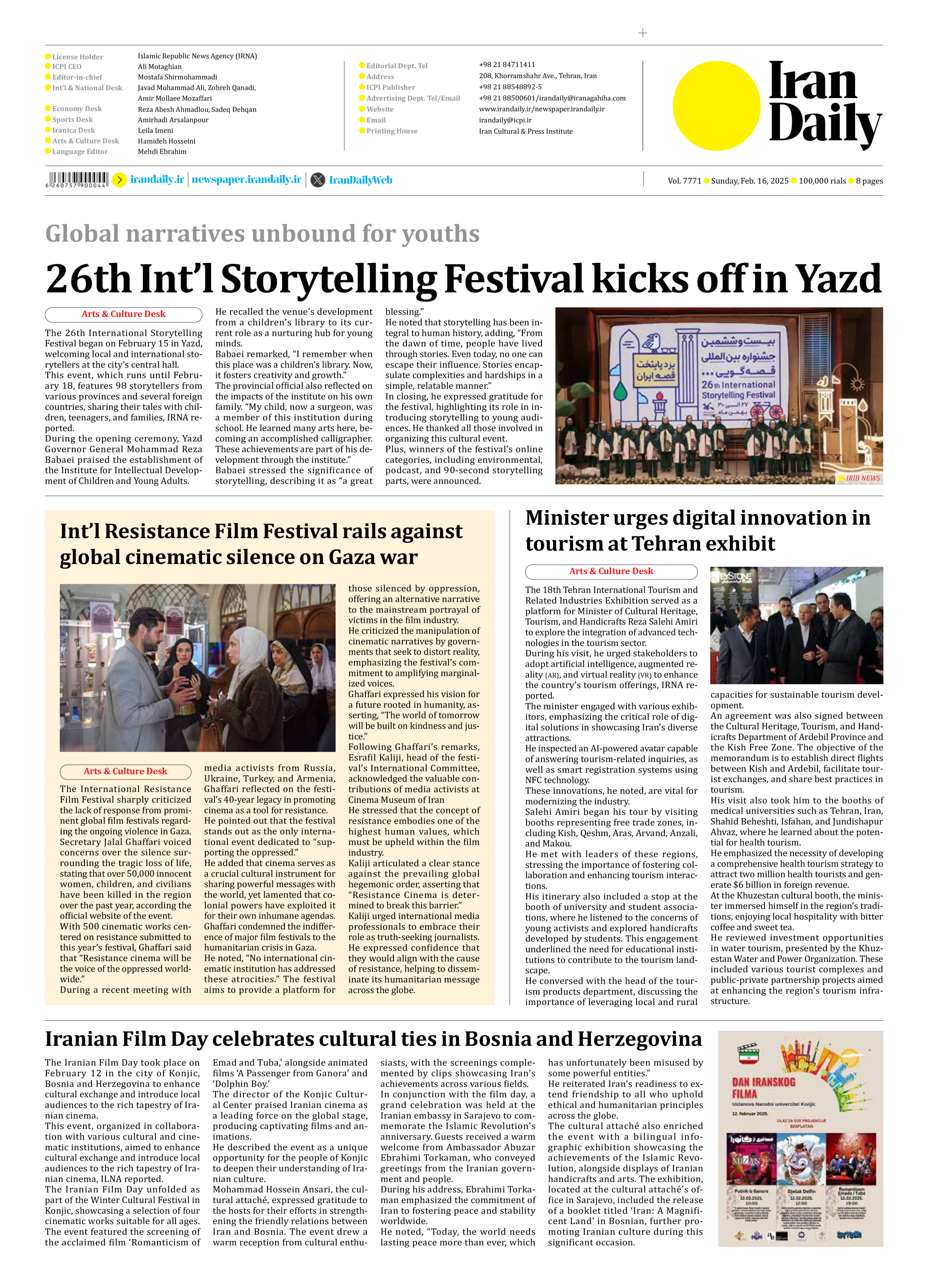
Minister urges digital innovation in tourism at Tehran exhibit
The 18th Tehran International Tourism and Related Industries Exhibition served as a platform for Minister of Cultural Heritage, Tourism, and Handicrafts Reza Salehi Amiri to explore the integration of advanced technologies in the tourism sector.
During his visit, he urged stakeholders to adopt artificial intelligence, augmented reality (AR), and virtual reality (VR) to enhance the country’s tourism offerings, IRNA reported.
The minister engaged with various exhibitors, emphasizing the critical role of digital solutions in showcasing Iran’s diverse attractions.
He inspected an AI-powered avatar capable of answering tourism-related inquiries, as well as smart registration systems using NFC technology.
These innovations, he noted, are vital for modernizing the industry.
Salehi Amiri began his tour by visiting booths representing free trade zones, including Kish, Qeshm, Aras, Arvand, Anzali, and Makou.
He met with leaders of these regions, stressing the importance of fostering collaboration and enhancing tourism interactions.
His itinerary also included a stop at the booth of university and student associations, where he listened to the concerns of young activists and explored handicrafts developed by students. This engagement underlined the need for educational institutions to contribute to the tourism landscape.
He conversed with the head of the tourism products department, discussing the importance of leveraging local and rural capacities for sustainable tourism development.
An agreement was also signed between the Cultural Heritage, Tourism, and Handicrafts Department of Ardebil Province and the Kish Free Zone. The objective of the memorandum is to establish direct flights between Kish and Ardebil, facilitate tourist exchanges, and share best practices in tourism.
His visit also took him to the booths of medical universities such as Tehran, Iran, Shahid Beheshti, Isfahan, and Jundishapur Ahvaz, where he learned about the potential for health tourism.
He emphasized the necessity of developing a comprehensive health tourism strategy to attract two million health tourists and generate $6 billion in foreign revenue.
At the Khuzestan cultural booth, the minister immersed himself in the region’s traditions, enjoying local hospitality with bitter coffee and sweet tea.
He reviewed investment opportunities in water tourism, presented by the Khuzestan Water and Power Organization. These included various tourist complexes and public-private partnership projects aimed at enhancing the region’s tourism infrastructure.







